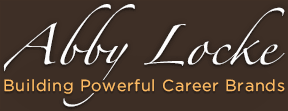
 Isn’t the first day back to work after a long weekend tough? I mean, we are not going to complain about working or having a meaningful job or business, but boy, I was moving sloooow this morning.
Isn’t the first day back to work after a long weekend tough? I mean, we are not going to complain about working or having a meaningful job or business, but boy, I was moving sloooow this morning.
Of course, I was moving slow because I had a great weekend, shopping for home decor and paints, church, brunch, BBQ, and dinner with a good friend…my spirit is joyful and filled, but my body is still playing catch up. No complaints here though:)
We have all been at social events or parties where someone starts telling a story that’s either too long-winded, confusing or over-the-top. While you may be able to get away with those stories at a party, the one area of your life that needs a strong, memorable and believable story is your career.
With all the skills, talents and qualifications you have mastered, have you finally mastered great storytelling in executive resume and your career marketing documents?
It’s always a challenge when it comes to selling yourself and determining what is too much and when your readers really need all the particulars about your career background. If you are not strategic in your approach to career story telling, you can make it hard for employers and recruiters to effective learn about you and the unique value you bring to the table.
Take a close look at your existing resume, career marketing documents and career marketing/interview messages, evaluate whether your messages are overkill or right on point.
Executive Resume:
- Overkill: An exhaustive four or five-page document that highlights every position in your career through dense paragraphs and lengthy bullet points.
- Right on point: A targeted, sharply written, two-page executive resume that zeroes in on relevant career information and chronicles the most significant achievements in your career.
Key strategy #1: Always start off with a clear definition of career goal and job search target and use those as focal points for developing your resume and other career documents. Minimize older information and eliminate less-relevant, non-essential data.
Elevator Pitch / Introduction Message:
- Overkill: In response to the “what do you do?” question, you take listeners through a 5-7 minute ramble of every aspect of your daily work requirements.
- Right on point: Respond in a confident voice giving listeners a mini introduction to your career background – just hit lightly about who you are, your best talents/value proposition and how he/she contact can help you.
Key strategy #2: Whether you are interacting with others in a networking meeting, informational interview or casual event, remember to keep your response anywhere between 1-3 minutes.
Job / Informational Interview:
- Overkill: Giving the interviewer every detail about all your jobs and overwhelming them with conflicting details and facts that are non-relevant and unrelated to the position
- Right on point: Answer each question in the Challenge-Action-Results (CAR) format, so the interviewer can hear and follow the highlights and outcomes of each success story as it elates to the position.
Key strategy #3: Focus on each achievement and determine the challenge or obstacle you had to overcome and quantify the results; the in-between facts of how you reached the results should be told from a high-level, strategic viewpoint. Stick to the facts that matter!
What does your career story sound like?



